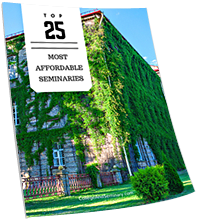So many books, so little time. That’s the mantra of every seminary student. So why would you want to add to your reading list? Because ultimately there’s only one person responsible for your education: you.
Summer reading for seminary students is vitally important for two reasons. First, some great books simply don’t fit into a seminary curriculum, but they are life-giving and soul-forming. What does it profit someone if they gain an education but lose their soul? Second, pastors and church leaders should be life-long learners. That means there’s no such thing as taking a break from your spiritual formation.
1. How to Read a Book ~ Mortimer Adler
You’ve read plenty of books in your life already, but what if you’re doing it wrong? Adler’s 1972 work has been in print continuously all these years. And for good reason: it’s the classic book on how to read books. Do you think of yourself as an analytical reader? If not, you should pick this up. If so, you should still pick it up because you might be wrong.
2. Eat This Book ~ Eugene Peterson
Because The Message is so widely accepted you might be tempted to think Eugene Peterson’s stuff is only for the mass market? Think again: this modern master has been both a local pastor and a seminary professor. Eat This Book: A Conversation in the Art of Spiritual Reading is a deep dive into the “how to” of reading scripture.
Go to the primary sources: Read the Apostolic Fathers
Some of the strongest voices in the church have been dead a thousand years or more. C.S. Lewis warned of “chronological snobbery.” We should listen to him. If your reading list consists only of 20th century Christians, you’re missing 95% of the wisdom of Christendom. Michael Holmes’ The Apostolic Fathers in English is a great place to start.
3. The Apocrypha
It’s true: these books don’t rise to the level of sacred, inspired scripture; but that doesn’t make them bad books! Find an academic Bible (like The New Oxford Annotated Bible With Apocrypha) and discover the world immediately surrounding the books of the Bible.
4. For the Life of the World: Sacraments and Orthodoxy ~ Alexander Schmemann
There are Catholics, there are Protestants, and there are Orthodox Christians. When was the last time you read a contemporary Orthodox author? Schmemann’s work has been called the perfect source for “understanding the Orthodox–and therefore ancient Christian–view of sacraments and sacramental living.”
5. Historical Fiction (a trio of recommendations)
It’s not everyone’s cup of tea, but it is a surprisingly insightful way of getting at material from a fresh perspective. Gerd Thiessen’s, Shadow of the Galilean is carefully researched and even footnoted, but it tells a story along the way. It’s a great way to learn: after all, didn’t Jesus tell stories? BONUS READING: try Bruce Longenecker’s Lost Letters of Pergamum or David deSilva’s Day of Atonement: A Novel of the Maccabean Revolt.
6. Or just plain fiction: All Hallows Eve ~ Charles Williams
Anyone who commands the respect of C.S. Lewis is worth checking out. You might think of Charles Williams as the “Godfather of the Inklings.” His books never achieved the popular fame of Lewis or Tolkien, but they both (along with the rest of their circle) considered Williams a visionary and a trusted advisor. Charles Williams wrote essays, poems, criticisms, and novels. All Hallows Eve is a great place to start.
7. Beyond Liberalism and Fundamentalism ~ Nancey Murphy
Seminary survivor (and local pastor) Teddy Ray says, “By the time I had gotten to seminary, I had heard all sorts of things about modernism and postmodernism and how they affect ministry and theology. Most of it was wrong, and the rest was superficial. The best real introduction I got came from Nancey Murphy.”
8. In the Name of Jesus ~ Henri Nouwen
Imagine a brilliant mind, someone who taught at Harvard and Yale, an ordained Roman Catholic priest, who left academia and the church world in order to take care of one mentally handicapped person. That’s Henri Nouwen. In the Name of Jesus: Reflections on Christian Leadership should be required reading for anyone with lofty ideas about “ministry.” It could be your required reading this summer.
9. The Practice of the Presence of God ~ Brother Lawrence
This 400 year-old classic is still changing hearts and revitalizing Christians to this day. What good is it to have a theology that God is everywhere unless we can know that presence? Sit at he feet of a French Carmelite monk who worked in the kitchen of his monastery. Before he died, all of Europe wanted to know his secrets.
10. A Rabbi Talks with Jesus ~ Jacob Neusner
Wouldn’t you like to listen in when a devout Rabbi engages Jesus in honest dialogue with Jesus? Rabbi Jacob Neusner’s gentle and open spirit will help reveal new insight into the Lord’s teaching. It’s not the kind of book that will be assigned in seminary, but it’s the kind of conversation you simply must hear.






